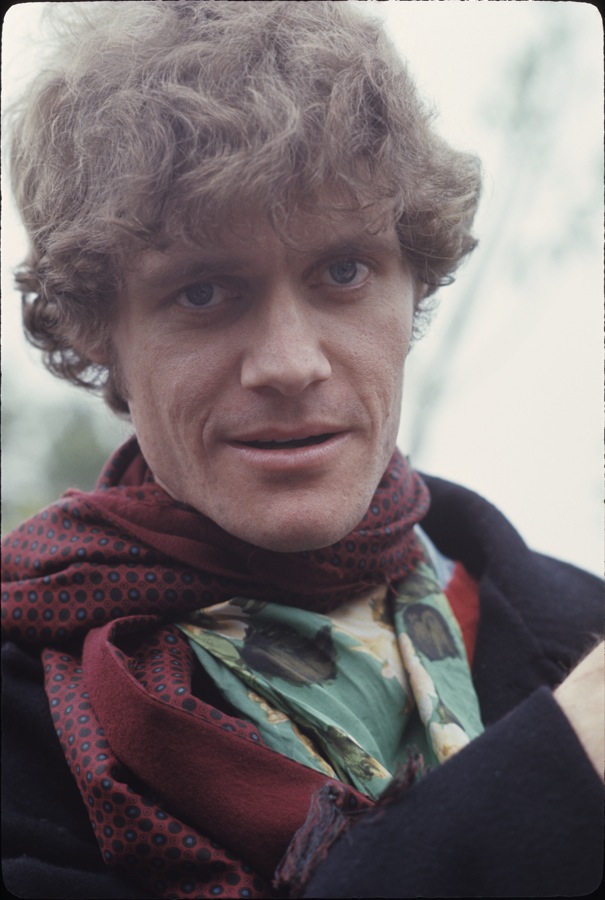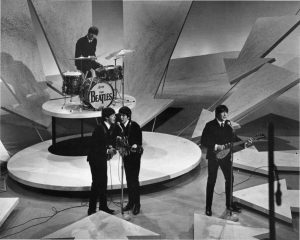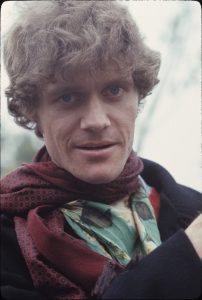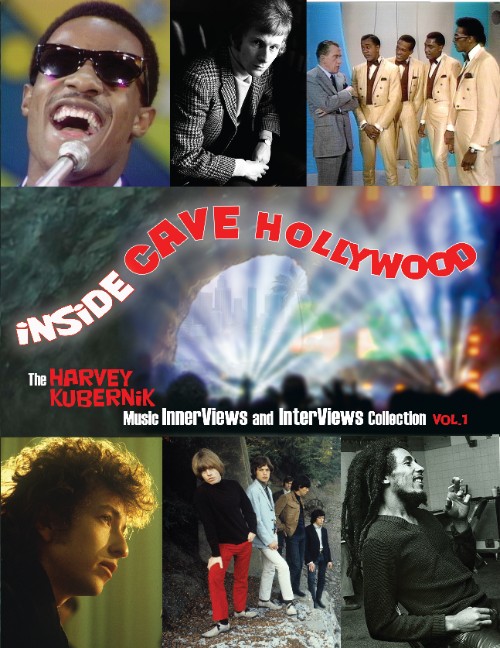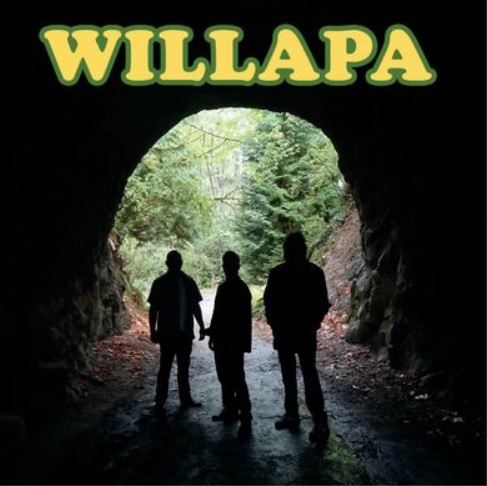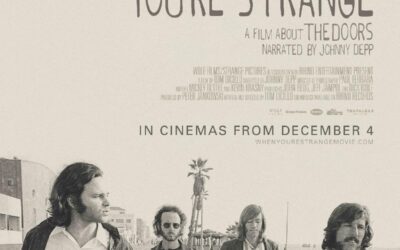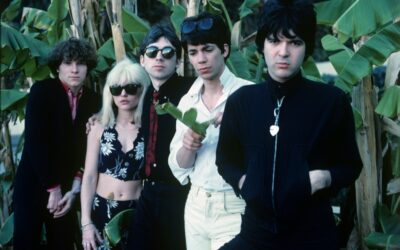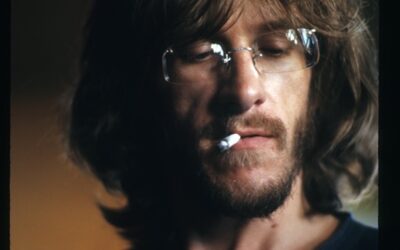As told to Harvey Kubernik C 2012
“In 1963 I was driving with Danny Hutton on the way to the beach, and the Beatles’ ‘Please Please Me’ came on the
radio, and we both said, ‘The Everly Brothers with a third harmony part and Carole King and Gerry Goffin melodies. This works!’
“I was with Danny when I saw them on The Ed Sullivan Show. It was in West L.A. Pacific Palisades or Brentwood area, with some girls and their family watching TV. “It was four guys dressed alike with the same haircut doing uniformity rock. It was like a miniature army up there. They had catchy songs on television with yelling girls. It was fine. I’d
been on TV before and I had also seen crowd bedlam around black R&B shows I was at. But they were white and they had clothing and hair from somewhere else. Some other universe. “I saw human male dolls for little girls to play with, and their hair, shoes, Beatle boots, clothes, were unique. The whole thing was new. Even though it wasn’t new to a lot of people.
“In Record World in 1964, the third music trade magazine in the U.S. behind Billboard and Cash Box, I had just produced the No. 1 hit ‘Popsicles and Icicles’ by the Murmaids. The next week ‘I Want to Hold Your Hand’ replaced me. So I figured everybody was knocked out. Only people like Terry Stafford with ‘Suspicion,’ ‘Dawn’ by the Four Seasons and Louie Armstrong with ‘What a Wonderful World’ had hits. So I went to England to learn what it was that caused everything to change. That’s all reflex.
“When the Beatles arrived and charted in America, everything became different. One day it changed, just like one day it changed when Elvis Presley arrived. One day it changed when Frank Sinatra arrived. One day it changed when Enrico Caruso arrived. And when Alexander’s Ragtime Band arrived. I mean, they are certain musical moments that arrived without notice, and if you were in the industry or the media or the public you dealt with it. Whether you wanted to or not. And you had to co-exist with it and interact with it and rebuild around the change. Just like the horse to the horse-and- buggy and then the locomotive. Black-and- white television turning into color. Same sex marriage. All those things.
“America and Hollywood in late 1963 was dealing with the loss of John F. Kennedy. When the Beatles took over the charts and AM radio playlists, locally and nationally, I was a guy who had three hit records already. On the day JFK died, I sold 88,000 copies of the Murmaids’ ‘Popsicles and Icicles.’ People were really sad and needed a 45rpm
“All during 1963 a lot of regional labels passed on the Beatles. The Hollywood and L.A. record companies still had a shirt and tie vibe. This was before the Beatles scored big with ‘I Want to Hold Your Hand,’ I had been at Capitol Records.
“George Martin was the catalyst for the embryonic dreams of Lennon, McCartney, Starkey and Harrison. Martin was able to consolidate and expand their anticipation. He was a great editor.
“It was in 1964 when Murray Deutch executive VP of the United Artists music division came in, who didn’t care about the Beatles’ movie A Hard Day’s Night, they just wanted the soundtrack override. That’s what he said to me. Murray had worked with Buddy Holly and now had the James Bond franchise. Mike Stewart of United Artists Records in America got the rights domestically, even though the Beatles were on Capitol Records.
“A Hard Day’s Night was a big, important moment in the development and the evolution of the rock song in film and the movie soundtrack as a retail item and stand-alone product itself.
“Then in 1964 I was at Dick James Music office in England hustling. They were the Beatles’ original music publishers via Northern Songs. Here come the four Beatles in suits with the neckties, and Brian Epstein, their manager, ran in and said, ‘Everybody stand up and applaud the boys.’ And they walked in the door.
“I did meet Brian Epstein once time. It was in an underground garage at a hotel after a party and cars were being brought around. I said, ‘What is the secret of the Beatles’ success?’ And he replied, ‘Surround your phenomena with specialists. It’s a line in my book, A Cellar Full of Noise. Why don’t you buy it and read it?’
“I met Ringo on two different occasions. Once in 1964 with PJ Proby at the Ad Lib Club when I was introduced to him as the co-producer and co-publisher of ‘Alley Oop’ by the Hollywood Argyles.
Ringo told me, ‘I sang lead on that!’ He did it with Rory Storm and the Hurricanes. It was one of his show pieces as a singing drummer. He told me he sang lead and the Beatles recorded it along with multiple songs at Abbey Road. They did it but it was never mixed down or issued. But it’s in the vaults at the studio.
“I then saw him in the early ‘90s at a Todd Rundgren party. I said, ‘Did you really sing ‘Alley Oop’ with the Beatles and it’s in the can at Abbey Road?’
“‘Yes, and I’ll tell you why I remember. Because I didn’t’ sing that many songs with the Beatles in the studio because we had three great lead singers. I sang some songs but not as many as they sang lead on. So I always remember the songs I sang lead on.’
“In 1966 at the Ad Lib Paul McCartney was there, disguised and dressed as an Arab and walking around. I also met him at a party he politely crashed in St. John’s Wood down the street from him. Paul saw a bunch of cars parked and he dropped in to take a look, jumped back in his own car and split.
“Also in 1966, I spent some time with John and Paul in London. Bruce Johnston of the Beach Boys was in town doing advance publicity for the Beach Boys’ Pet Sounds and had an acetate pressing with him. I was asked to bring the Who’s Keith Moon over, who brought John and Paul to the hotel room. They were both very impressed by the recording, left the hotel and went into the recording studio later did ‘Here, There and Everywhere’ for Revolver. The both of them were able to digest and gauge the whole essence of Pet Sounds in one listening.

